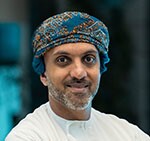Developments in the petroleum industry continue to shape our advancements in technology, processes, planning, and financial analysis of successful projects. The optimization that is required to address the challenges continues to raise the state of resources projects so that they are more efficient, operationally effective, revenue-generating, and profitable. These intensified methodologies in addressing our challenges and uncertainties in development of marginal fields rely on the technical diligence that we exhaustively integrate in our various disciplines.
Field development is a vast topic that encompasses a spectrum of disciplines and requires access to a multitude of skills. As the exploitation of hydrocarbons moves into increasingly challenging scenarios, the ability to enhance the strength of available tools so that they can create a whole greater than the parts is no longer an option but a necessity. This year’s Field Development selections reflect this need for optimization, whether it comes in the form of interdisciplinary collaboration, process combination, or foresight in risk prevention.
In paper URTeC 4043465, the authors demonstrate a novel workflow that provides insight into fracturing, well performance, and well spacing to achieve optimized completion operations, meet stimulation requirements, and maximize production. Additionally, value is added through less time required for analysis and data evaluation.
Paper SPE 221800 presents a development strategy that uses processes based on project-management principles to achieve effective asset development for a marginal field in Nigeria. The execution of these principles, and the discussion of the process and its proactive approach toward challenges both expected and unexpected, highlight the significant effect that detail-oriented thinking can have on economic project value.
Finally, in paper SPE 220621, a coupling of reservoir characterization and programming approaches is shown to achieve well-design optimization and placement. The integrated approach presented by the authors explores the results of complex simulations that mimic the nature and complexity of reservoirs to the greatest extent possible.
The research and development that authors of SPE papers contribute, with their deep technical knowledge that aligns with long-term industry objectives and expectations, is both scientifically sound and practical in the field. I encourage you to delve into the knowledge and experience provided here and to seek your own opportunities for innovative ideas that can help elevate our industry further.
Summarized Papers in This September 2025 Issue
SPE 220621 Mixed-Integer Programming Optimizes Well Placement by Fouad F. Abouheit, Saudi Aramco, et al.
SPE 221800 Structured Project-Management Approach Accelerates Marginal Field Development by Kenneth C. Nwagbo, Matrix Energy Exploration and Production
URTeC 4043465 Hybrid Workflow Enables Efficient Field Development Planning and Execution by Jesse D. Williams-Kovacs, Subsurface Dynamics, et al.
Recommended Additional Reading
SPE 221827 Enhancing the Well-Engineering-Management System Through a Capability Maturity Model Integration-Based Approach by Alexey Ruzhnikov, SLB, et al.
IPTC 25079 Unplanned Casing Shoe Setting Led to a New Well Schematic Optimized Design for Future Wells at Quesqui Field by A. Rivera, Pemex, et al.
SPE 223396 Early Signs of Gas Recognition Based on Machine-Learning Analysis of Passive Acoustics by Y. Maslennikova, TGT Diagnostics, et al.

Maan H. Alasfoor, SPE, is a petroleum engineer with Petroleum Development of Oman. He has more than 20 years of oilfield experience and has served in various companies such as Halliburton, SLB, and Occidental. Alasfoor holds a bachelor of engineering degree in mechanical engineering from Robert Gordon University and a master of engineering degree in petroleum engineering from the Colorado School of Mines. He has served in various SPE roles and is a member of the JPT Editorial Review Board.

